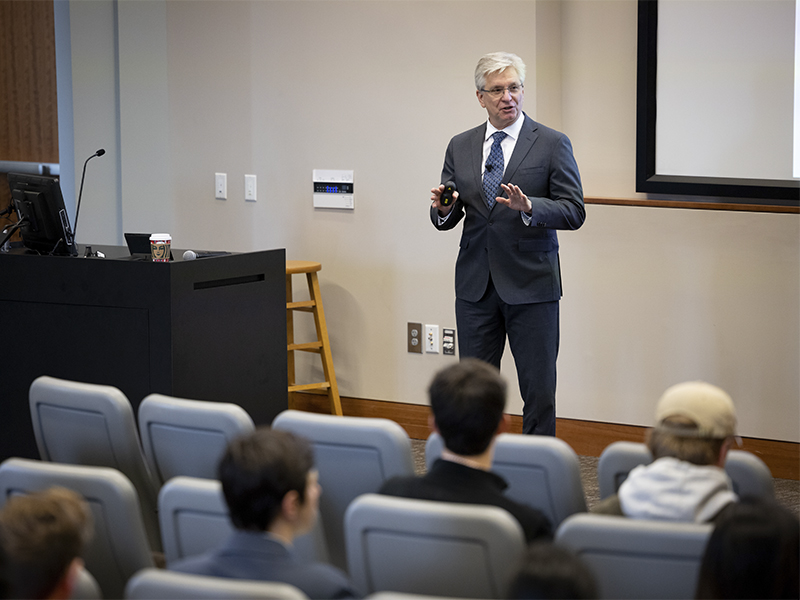In the last year, Sweden has launched a digital version of its Krona and China has piloted a digital Yuan, but a U.S. Federal Reserve official pumped the brakes on the idea of rolling out a digital currency in the United States.
Digital dollars, which would be issued by the U.S. central bank, could be used to make payments between parties without involving a private bank, just like paper money is used today. One possible benefit is that digital currency could be monitored to deter fraud and illicit activities, but it may also represent unfair public competition for the private banking sector.
“For a hundred years, the Fed has been in the background and chosen not to compete directly with banks,” Federal Reserve Governor Christopher Waller told a University of Georgia audience recently. “I’m not saying we can’t do this, but I want to hear the public policy reasons for this dramatic change in the way that payments are done.”
Waller visited UGA to talk about the current debate surrounding central bank digital currency (CBDC) at the Department of Economics’ annual David McCord Wright Lecture on Nov. 5.
His speech on “Demystifying Central Bank Digital Currency” provided historical context for the heightened interest in digital currencies and offered arguments for and against creating a CBDC in the United States.
Central banks and policymakers in many countries are discussing digital currencies as tools to build economic inclusion, to ease international money transfers or to spur the innovation of new financial products. China and Sweden are piloting versions of digital currencies right now, and seven nations with smaller economies — including The Bahamas — have launched active digital versions of their currencies.
The United States is one of many major economies that hasn’t taken the plunge. One reason is that our banking system works so well, Waller said. It’s hard to argue the system needs fixing when it’s been running smoothly for so long.
“As economists, we always say that there’s a role for government intervention when there is some kind of market failure,” Waller said. “What is the market failure that would require this type of intervention? Why should the Fed become a direct competitor of the banking system? We don’t do this with any of the other goods and services in our lives.”
Common arguments for creating a digital dollar include the possibility of bringing unbanked families into the modern financial system, creating room for new financial products, easing international transfers and combating China’s global influence, Waller said.
He counters that only 5.4% of Americans lack access to a bank account, innovations are happening so quickly they can’t be regulated and electronic transfers are becoming faster every day. He added that China’s development of a CBDC is more about monitoring their own citizens’ spending than it is about global influence.
There simply hasn’t been enough evidence showing why a U.S. digital currency is necessary, he said.
“The typical CBDC research paper is like an infomercial,” Waller said. “They’re like, “Look what you can do with this thing. It slices. It dices. It cuts. It minces.’ It’s all to keep you thinking of all the things you can do with the product before asking yourself, ‘Do I need this thing?’”

